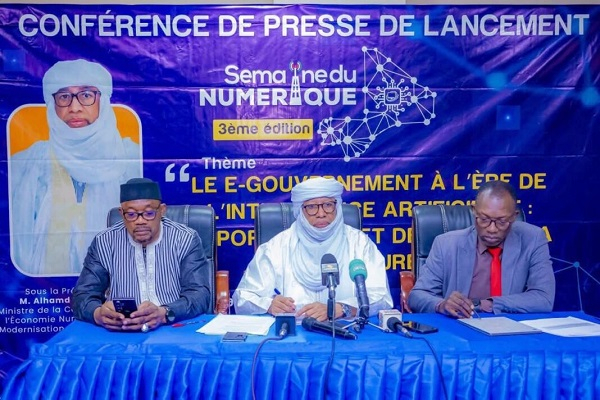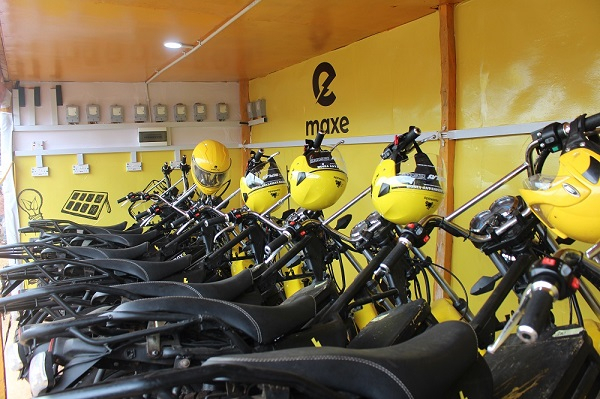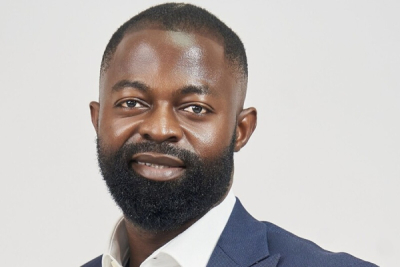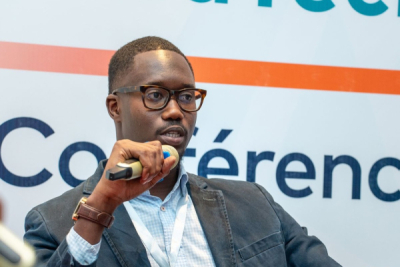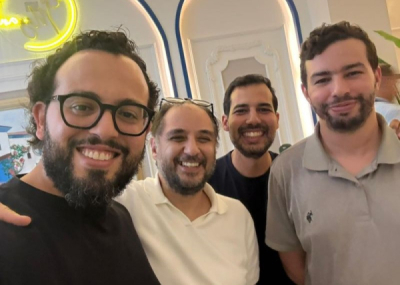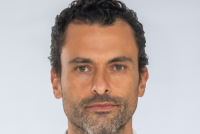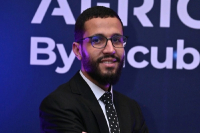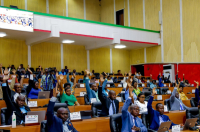Mali’s Minister of Communication, Digital Economy, and Modernization of Administration, Alhamdou Ag Ilyène, has announced the launch of Digital Week, scheduled for January 29-31, 2026, in Bamako. Themed "E-Government in the Era of Artificial Intelligence," this year’s event will feature Burkina Faso and Niger as guests of honor, with a core focus on Sahelian cooperation, cybersecurity, and digital innovation.
Nigeria’s Metro Africa Xpress (MAX) has secured $24 million in debt and equity to bolster its electric vehicle (EV) financing across West and Central Africa. This fresh capital will support fleet expansion, the rollout of battery-swapping stations, and the company's regional growth.
Nigerian fintech Cardtonic has raised $2.1 million to scale Pil, a standalone expense management platform tailored for African startups and SMEs. Designed as a comprehensive financial operating system, Pil will offer virtual dollar cards, multi-currency funding, and real-time expense tracking, marking Cardtonic’s strategic shift from consumer services to the B2B market.
- Rank targets individuals and small businesses seeking structured, long-term financial discipline through technology.
- The fintech offers multiple savings products alongside instant payments and bill management.
- Founder Femi Iromini previously worked with the World Bank and led an education-to-employment startup.
Femi Iromini is a Nigerian entrepreneur and the co-founder and chief executive officer of Rank, formerly known as Moni. Rank operates as a community-based fintech that develops financial products for African small businesses and individuals seeking to build wealth.
Founded in 2020, Rank positions itself as a financial application for ambitious users who want to save more effectively, manage spending efficiently, and grow within a goal-oriented community. The company aims to make prosperity more accessible by creating links between users who aspire to advance financially and those who already master savings discipline.
Rank offers several savings mechanisms. The first product, called “Reserve,” allows users to set aside funds securely for a fixed period while earning regular returns. The second product, “Flex,” provides greater liquidity by allowing users to withdraw funds at any time without forfeiting interest.
The platform also offers “Goals,” a savings product designed to finance clearly defined projects through targeted contributions. In addition, Rank provides a “Premium” offering for users managing larger balances or building long-term wealth, with higher interest rates and priority support.
Beyond savings, Rank integrates payment and expense management features. Users can send and receive money instantly at any time and pay multiple bills, including electricity, cable television, internet, and other services, through a single interface.
Before launching Rank, Femi Iromini founded Lead360HQ in 2017. The organization partnered with African universities to help students convert academic training and personal ambition into concrete career opportunities. He served as chief executive officer of Lead360HQ until 2019.
Femi Iromini graduated from Obafemi Awolowo University in Nigeria, where he earned a bachelor’s degree in geophysics in 2012. He later worked as a consultant for the World Bank from 2019 to 2021.
This article was initially published in French by Melchior Koba
Adapted in English by Ange Jason Quenum
- Senegalese entrepreneur Stéphane Mancabo co-founded Yello to shift baccalaureate revision toward daily, low-pressure learning.
- The Yello app offers offline-accessible, modular content and uses gamification to encourage consistency.
- Founded in 2023, the startup targets structural gaps in exam preparation through digital tools.
Stéphane Mancabo, a Senegalese entrepreneur, serves as co-founder and chief executive officer of Yello. The startup aims to turn baccalaureate preparation into a daily process that feels simpler, smoother, and less anxiety-inducing for high school students.
Founded in 2023, Yello operates as an educational application that delivers structured content designed around students’ real-life constraints. The platform provides audio lessons, written texts, and concise summaries, allowing users to choose learning formats that suit their preferences. The company designs the content to improve comprehension, reduce technical jargon, and guide students progressively toward baccalaureate requirements.
Students can download courses, which allows them to revise without continuous internet access. Yello avoids intensive or overwhelming study methods and instead emphasizes gradual learning. The app organizes content into short, targeted modules that focus on specific concepts rather than entire chapters. This structure seeks to establish steady progress without making students feel overloaded.
Yello uses reminder notifications to structure students’ work and encourage continuous revision rather than last-minute cramming. The application also integrates gamification features. Users earn points, unlock progress badges, and rank on national or school-level leaderboards. The system includes rewards and prizes designed to recognize consistency and sustained engagement.
On the academic and professional front, Stéphane Mancabo earned a bachelor’s degree in microfinance in 2018 from the Catholic University of West Africa (UCAO) in Cameroon. He began his career in 2017 as business development director at T’es de Dakar (TDD), a digital media outlet.
From 2020 to 2021, he worked as production project manager at Walabok Studio. At the same time, he appeared as a technology news presenter on Télévision Futur Média. He later joined WURUS LAB, an audiovisual production company, where he served as production director until 2023.
This article was initially published in French by Melchior Koba
Adapted in English by Ange Jason Quenum
- Moroccan startup Woliz raised $2.2 million to scale its retail digitization platform
- The solution uses AI and connected devices to modernize small shops
- Partnerships with Visa and Attijari Payment support digital payment adoption
Woliz is a digital solution developed by a Moroccan startup that connects small neighborhood retailers to the digital economy by giving them access to tools usually reserved for large retail chains. Based in Casablanca, the startup was launched in 2025 by Kamal Hardouzi, Ismail Amri, Othmane Jabrane, and Karim Hamri. In December 2025, it announced the successful completion of a $2.2 million funding round to support its growth.
At the core of Woliz’s offering is an application combined with artificial intelligence technologies and connected terminals that allow retailers to manage their businesses more efficiently. These tools cover sales tracking, inventory management, automated ordering, acceptance of digital payments, and access to financial services through banking partners. This integrated approach also promotes financial inclusion for small retailers, who are often excluded from formal financial systems.
Woliz goes beyond the digitization of individual points of sale. The platform operates as an intelligent ecosystem linking retailers, distributors, major fast-moving consumer goods brands, financial institutions, and service providers. This interconnection helps reduce operating costs and creates new economic opportunities for traditional retailers.
At the same time, the startup has formed strategic partnerships with Attijari Payment and Visa to facilitate the transition to modern, secure, and inclusive payment methods. The three-way partnership aims to expand the use of digital payments while adapting to local market realities.
By combining artificial intelligence, data analytics, fintech, and retail technology, Woliz offers small retailers a new path toward a connected, competitive, and sustainable neighborhood commerce model in an increasingly digitalized economy.
Adoni Conrad Quenum
-
Omar Saleh co-founded Khazna, a fintech platform targeting underbanked salaried workers in Egypt and the Middle East.
-
The app allows employees to access part of their salary in advance and pay bills directly via mobile.
-
Khazna partners with employers and merchants to reduce reliance on informal borrowing and traditional banks.
Omar Saleh, an Egyptian entrepreneur now based in Riyadh, Saudi Arabia, serves as co-founder and chief executive officer of Khazna. The fintech startup targets underbanked populations in Egypt and, more broadly, across the Middle East.
Founded in 2019, Khazna develops a mobile application that helps employees manage their money on a daily basis. The platform delivers simple and fast financial services directly through smartphones.
Khazna integrates multiple features designed to meet common household needs. The app seeks to replace or complement processes usually handled through banks, retailers, or utility billing companies.
One of Khazna’s core services provides salary advances, primarily for employees of partner companies. This feature allows workers to instantly access a portion of the following month’s salary through the app.
The service aims to reduce reliance on informal loans from family members or colleagues when unexpected expenses arise before month-end.
Khazna also relies on a network of partner merchants where users can make immediate purchases with deferred payment options. The platform further allows users to finance purchases made at other retailers while defining flexible and simplified repayment terms.
In addition, the application integrates a bill payment service, enabling users to settle recurring expenses directly from their mobile devices.
Omar Saleh graduated from Cairo University in 2005 with a bachelor’s degree in chemical engineering. He later earned an MBA in 2014 from Stanford Graduate School of Business in the United States.
He began his professional career in 2005 at BG Group in the oil and gas sector as a senior project engineer. In 2010, he joined Dow Chemical as commercial manager for Africa. Three years later, he became an investment banking associate at J.P. Morgan in the United States.
Between 2016 and 2019, Saleh served as strategy director at Advanced Energy Systems (ADES), an energy sector company. He rejoined ADES in 2022 as a member of the audit committee, a position he held for two years.
This article was initially published in French by Melchior Koba
Adapted in English by Ange Jason Quenum
-
Algerian engineer Aymen Hamidi founded Kabas to deploy field-oriented artificial intelligence in heavy industry.
-
Kabas develops two core products, DALILE and Virtual Lab, to turn industrial data into operational decisions.
-
The company targets industrial efficiency gains while keeping full control over data and infrastructure.
Aymen Hamidi, a mining engineer by training and an Algerian entrepreneur, founded and leads Kabas, a technology company that integrates artificial intelligence to transform and optimise industrial processes.
Founded in 2023, Kabas positions itself as a deep-tech company that places AI at the service of heavy industries while ensuring full control over data and infrastructure. The company bases its offering on a pragmatic vision of artificial intelligence built around two complementary products: DALILE and Virtual Lab.
DALILE operates as an intelligent assistant dedicated to industrial knowledge. The system explores and exploits large volumes of technical documents and complex datasets, and it deliberately distances itself from consumer chatbots. The solution relies on a set of specialised agents that share analytical tasks, cross-check information, and deliver structured answers from simple queries written in everyday language.
Virtual Lab complements this approach by addressing another critical industrial challenge: the transition from idea to experimentation. The platform simulates scenarios before laboratory tests or pilot-scale trials by adjusting formulations, process parameters, or operating conditions. Teams can compare options, measure the impact of decisions, and identify the best balance between performance and cost without immobilising equipment or consuming raw materials. Connected to DALILE, Virtual Lab uses knowledge extracted from company data to further refine analysed scenarios.
On the academic and professional front, Aymen Hamidi earned a mining engineering degree in 2023 from the National Polytechnic School of Algeria. He completed several internships in the mining sector, including at ENOF Spa and SOMIPHOS, where he worked on extraction sites and phosphate processing plants. In 2022, he joined Sonatrach as a geophysics engineering intern, before completing a two-month laboratory engineering placement in 2023 at Drilling Fluids Services aux Puits (DFSP).
This article was initially published in French by Melchior Koba
Adapted in English by Ange Jason Quenum
-
Burundi lawmakers unanimously approved a law regulating the collection, processing, and use of personal data amid accelerating digitalisation.
-
The legislation creates an independent data protection authority and introduces criminal penalties for violations.
-
The reform aligns Burundi with African and international digital governance standards and supports rollout of a biometric national ID.
Burundi adopted a dedicated legal framework for personal data protection as lawmakers moved to secure the country’s digital transformation and strengthen citizen trust.
Members of the National Assembly meeting in plenary session on Thursday, January 15, in Kigobe unanimously adopted a bill governing the collection, processing, and exploitation of personal data, as public administration and services expand digital systems.
Données personnelles : le Burundi verrouille l’ère numérique
— Irebe FM (@IrebeFM) January 15, 2026
Une Assemblée en mode responsabilité
L’Assemblée nationale s’est réunie ce 15 janvier 2026, au Palais des Congrès de Kigobe, sous la présidence de Daniel Gélase Ndabirabe, afin d’analyser et d’adopter le projet de loi… pic.twitter.com/NRu0IhKEsK
The Ministry of Interior, Community Development, and Public Security sponsored the law to close a legal gap created by the rapid spread of digital tools across government, the private sector, and daily life. Authorities expanded computerized systems, digitised the voter register, and advanced the rollout of a biometric national identity card, which together increased the production of sensitive data that existing Burundian law regulated weakly.
The law establishes core principles for privacy protection and emphasizes respect for fundamental rights and freedoms. It introduces multiple data protection regimes and creates an independent administrative authority responsible for enforcement, which aligns Burundi’s framework with international standards for digital governance.
On the operational front, the legislation introduces specific criminal penalties for violations, complementing existing cybercrime provisions. Lawmakers framed these measures as essential to restoring public confidence in digital systems, as parliamentary debates highlighted concerns over data security and misuse.
Beyond the national context, the reform fits within a broader continental push. The African Union has promoted legal harmonisation through the Malabo Convention on cybersecurity and personal data protection. About 39 African countries have already adopted dedicated data protection laws, while several others continue legislative reviews.
In Burundi, the new framework should also remove a key obstacle to deploying the biometric national identity card. Authorities said technical milestones already include installing registration software aligned with the new administrative boundaries. Officials currently test the system in about a dozen pilot communes before a phased nationwide rollout.
This article was initially published in French by Samira Njoya
Adapted in English by Ange Jason Quenum
Ghana-based Stars From All Nations (SFAN) has secured a grant from the British Council Ghana to train 100 creative entrepreneurs. Through its ReadyforWork platform, SFAN will offer training in business and digital skills to help young talent build sustainable companies. Applications for the program are open through Friday, January 30.
More...
Nigerian fintech Paycrest announced a $404,000 funding round on Tuesday to build out its decentralized settlement layer. By linking stablecoins with fiat in emerging markets, Paycrest is making cross-border payments faster and more compliant. Having already undergone real-world testing, the platform offers a resilient payment infrastructure designed specifically to navigate local constraints.
Egypt’s MoneyHash has teamed up with Spare to bring Pay-by-Bank options to UAE merchants. By reducing costs and accelerating settlements, the collaboration promises a more seamless checkout experience. The move is a key step in MoneyHash’s mission to scale open banking and modernize the Middle East’s payment landscape.
-
Nigeria ranked 144th out of 193 countries in the UN e-government index in 2024 and seeks to accelerate digital reform.
-
Denmark’s cBrain partnered with Nigeria’s Publica AI to deploy the F2 government software platform across federal ministries and agencies.
-
Nigeria aims to digitize 75% of public services by 2027, positioning the country as a key market for digital government in Africa.
Ranked 144th out of 193 countries by the United Nations for e-government in 2024, Nigeria is seeking to modernize its public services. To achieve this goal, the country has expanded international partnerships, while Denmark’s cBrain could play a central role in this transformation.
cBrain, a Danish provider of government software, announced on Wednesday, January 14, a partnership with Nigerian technology solutions provider Publica AI to deploy its F2 platform across Nigeria’s federal ministries and agencies. The standardized solution combines case management, automated workflows, and embedded artificial intelligence, offering a ready-to-use tool designed to accelerate administrative modernization.
Under the agreement, Publica AI will handle implementation and adaptation to Nigeria’s regulatory requirements. “This partnership combines international expertise with local knowledge, ensuring that all sovereign data remains in Nigeria while delivering world-class technology,” said Willie Ignatius, Chief Executive Officer of Publica AI.
cBrain designed its off-the-shelf F2 digital platform specifically for government use. The platform provides core capabilities required for digital government and reduces reliance on custom development and lengthy IT projects. These capabilities include case management, integrated workflows, self-service tools, registries for citizens and businesses, mass-operation functions to manage large case volumes, and on-site embedded artificial intelligence.
The deployment of F2 forms part of cBrain’s broader Africa strategy, which the company has already tested in Kenya. Nigeria’s selection reflects its strategic importance, as the country has more than 200 million people and rising demand for accessible digital public services. The Nigerian government aims to digitize 75% of its public services by 2027.
Beyond administrative efficiency, the partnership seeks to stimulate Nigeria’s digital economy by improving access to public services and strengthening institutional transparency and accountability. The deal also represents a strategic opportunity for cBrain, which plans to expand its African footprint while leveraging international standards to build a model that it can replicate in other countries across the continent.
This article was initially published in French by Samira Njoya
Adapted in English by Ange Jason Quenum
- Amazon secured a seven-year landing permit to launch Project Kuiper satellite internet services in Nigeria from February 2026.
- The approval opens Nigeria’s LEO satellite broadband market to direct competition with Starlink, which counts more than 66,000 subscribers.
- Amazon plans Ka-band services with speeds of up to 400 Mbps, targeting households, businesses, and critical infrastructure.
Nigeria has opened its satellite broadband market to a new global player. Amazon secured a seven-year landing permit from the Nigerian Communications Commission, allowing Project Kuiper to launch internet services in the country from February 2026. The decision supports Nigeria’s strategy to diversify connectivity infrastructure and attract next-generation technology investment.
“The approval aligns with global best practices and reflects Nigeria’s commitment to opening its satellite communications market to next-generation broadband service providers,” the NCC said, highlighting the strategic importance of the authorization amid rising demand for connectivity.
The license allows Amazon Kuiper to operate its space segment in Nigeria as part of a global low-Earth-orbit constellation of up to 3,236 satellites. The authorization covers fixed satellite services, mobile satellite services, and earth stations in motion. These services target households, businesses, mobility use cases, logistics, aviation, maritime transport, and critical infrastructure.
Amazon’s entry ends Starlink’s quasi-exclusive dominance of Nigeria’s LEO satellite internet market. Starlink benefited from a first-mover advantage and built an estimated base of more than 66,000 subscribers. Kuiper’s arrival introduces direct competition between two global players with large financial, technological, and industrial resources. That rivalry could reshape pricing, service quality, and coverage.
From a technical standpoint, the authorization covers operations in the Ka frequency band, which supports high data transmission capacity. Amazon plans to use 100-MHz channels and deliver speeds of up to 400 Mbps while keeping terminal costs compatible with mass adoption. These features strengthen satellite broadband as a credible alternative to terrestrial networks, including in urban and semi-urban areas.
Nigeria represents a strategic market for Amazon. The country still faces major connectivity gaps despite its large population. According to the NCC, more than 23 million Nigerians live in unserved or underserved areas, while mobile broadband penetration reached 50.58% in November 2025. In that context, LEO satellites, which offer low latency, support advanced digital uses ranging from cloud computing to digital financial services.
Beyond households, Kuiper’s services could meet demand from businesses in oil and gas, mining, ports, and logistics corridors, where fiber deployment remains costly or technically complex. Amazon, which renamed Project Kuiper as Amazon LEO in November 2025, plans to leverage integration with Amazon Web Services to bundle connectivity with cloud services.
With this authorization, Nigeria strengthens its position as one of Africa’s most dynamic satellite broadband markets. Increased competition among LEO operators should gradually improve internet speed, affordability, and resilience, benefiting consumers, businesses, and Nigeria’s digital economy.
Samira Njoya, Ecofin Agency


